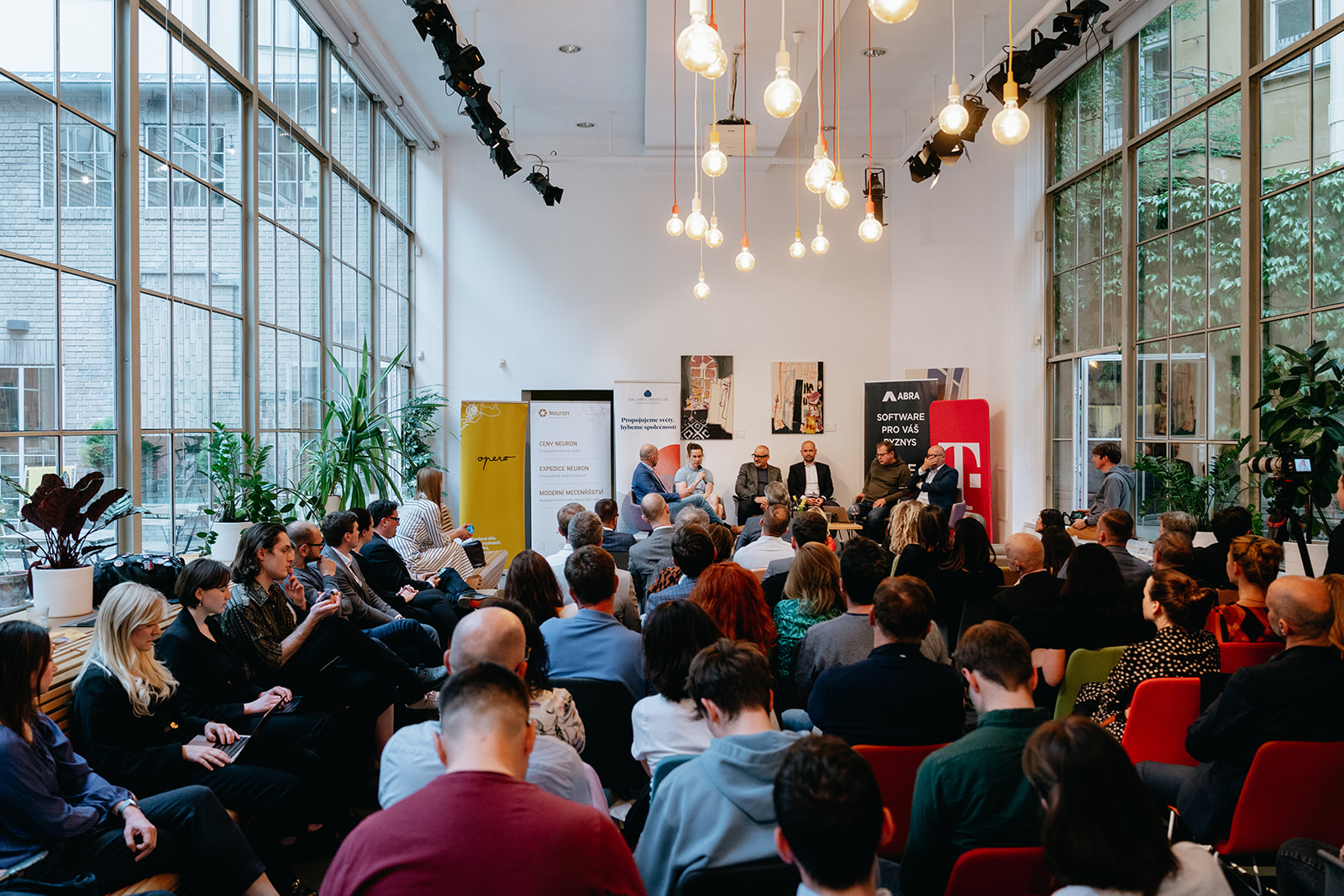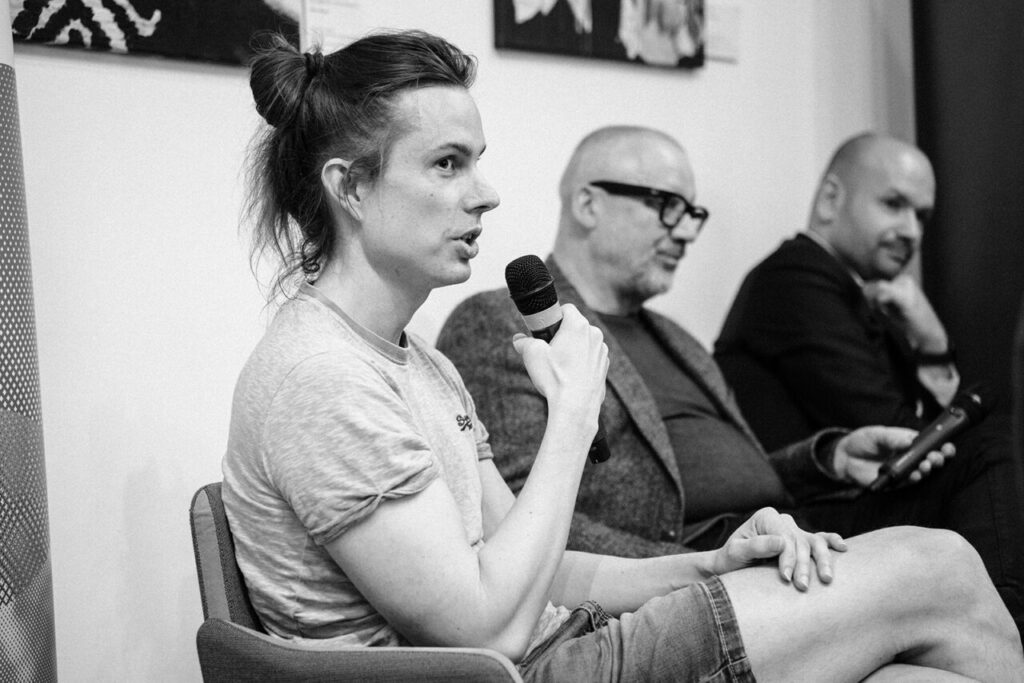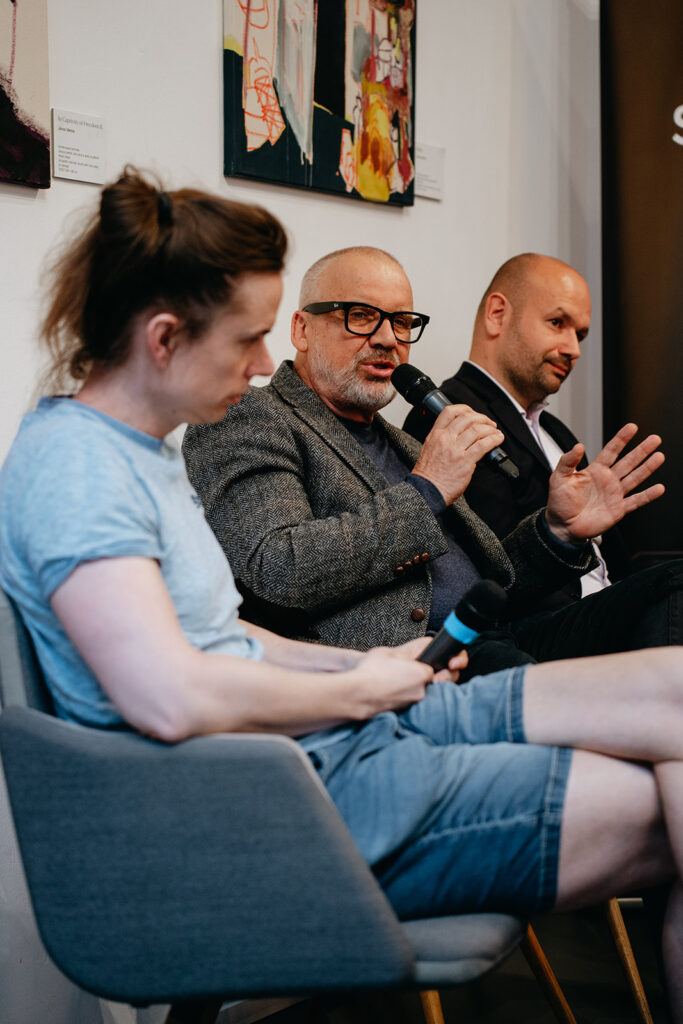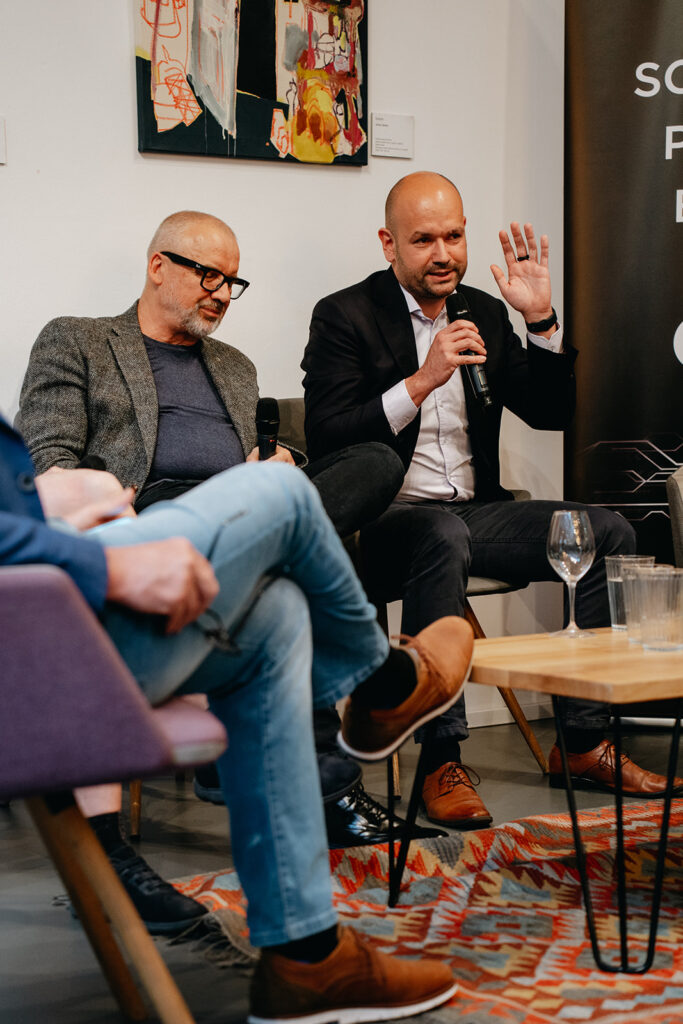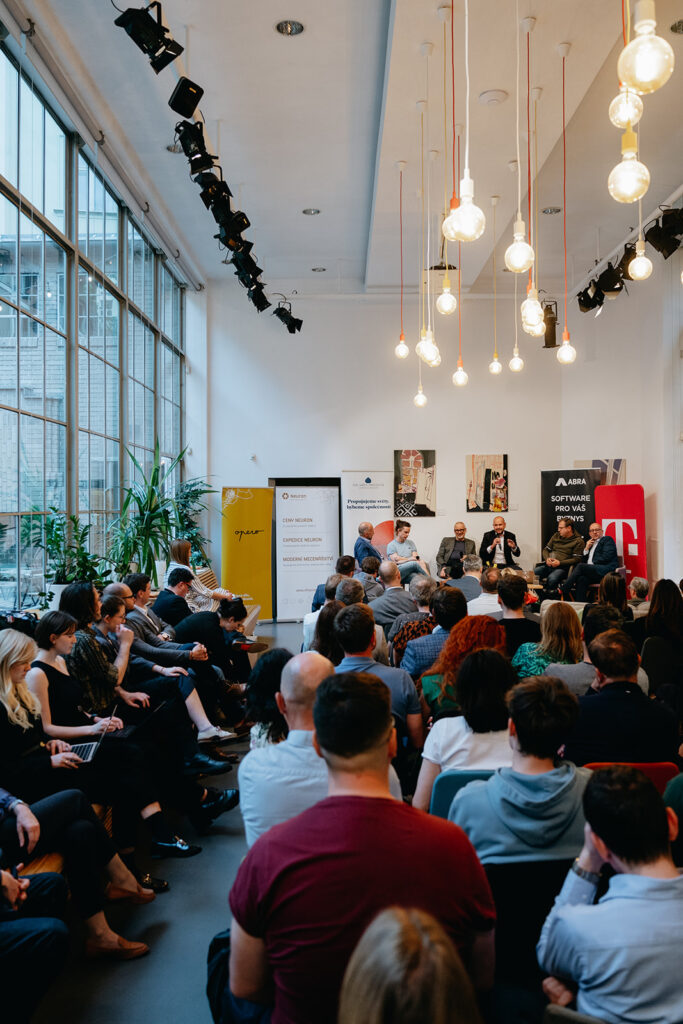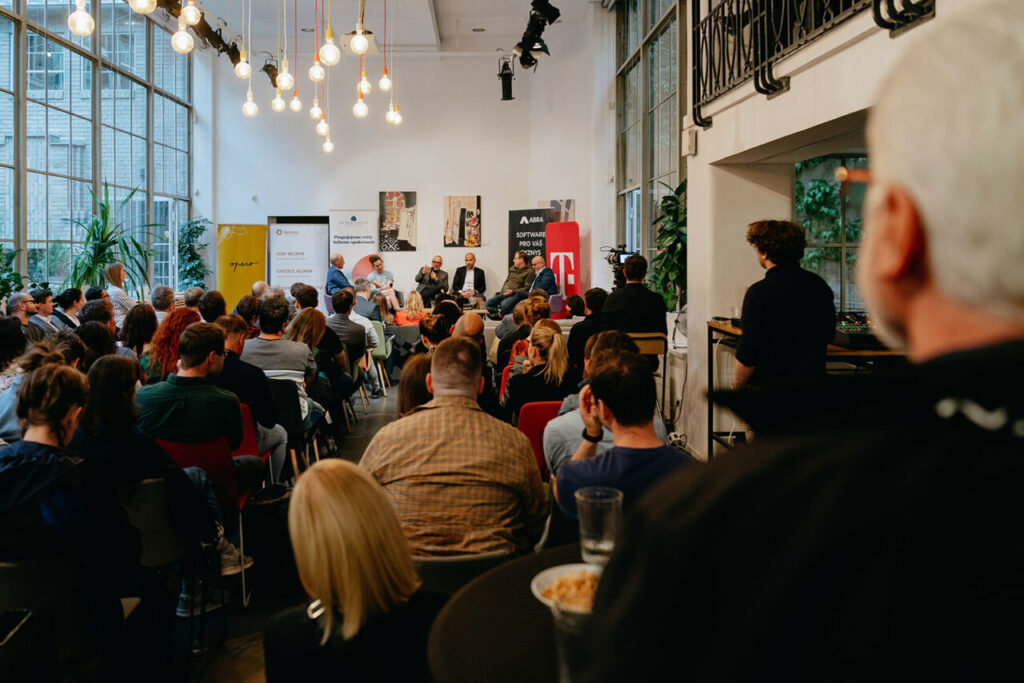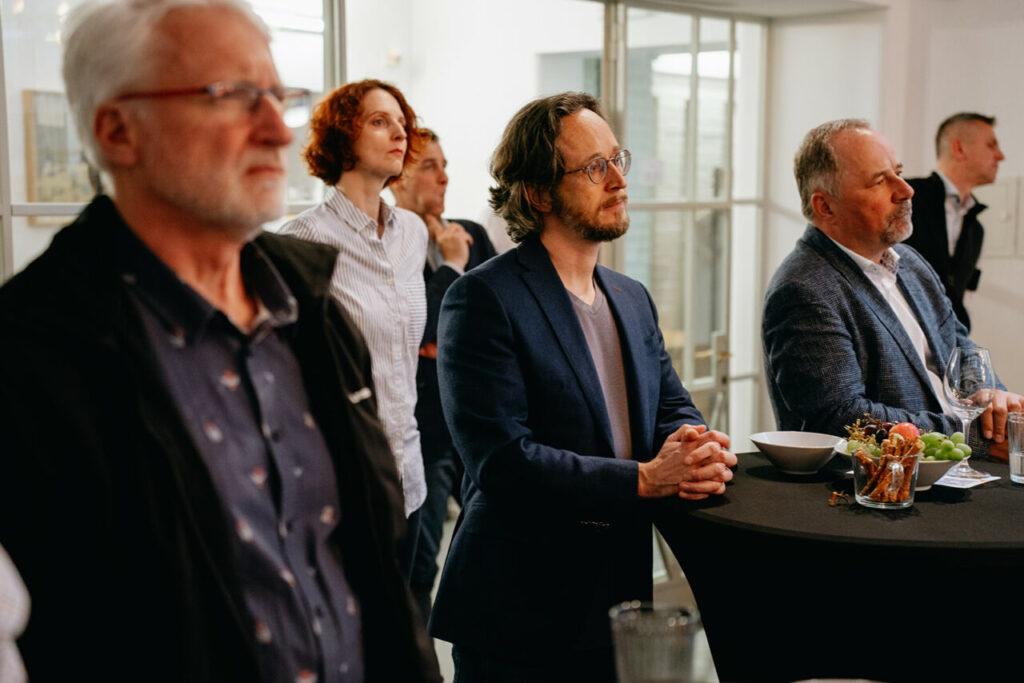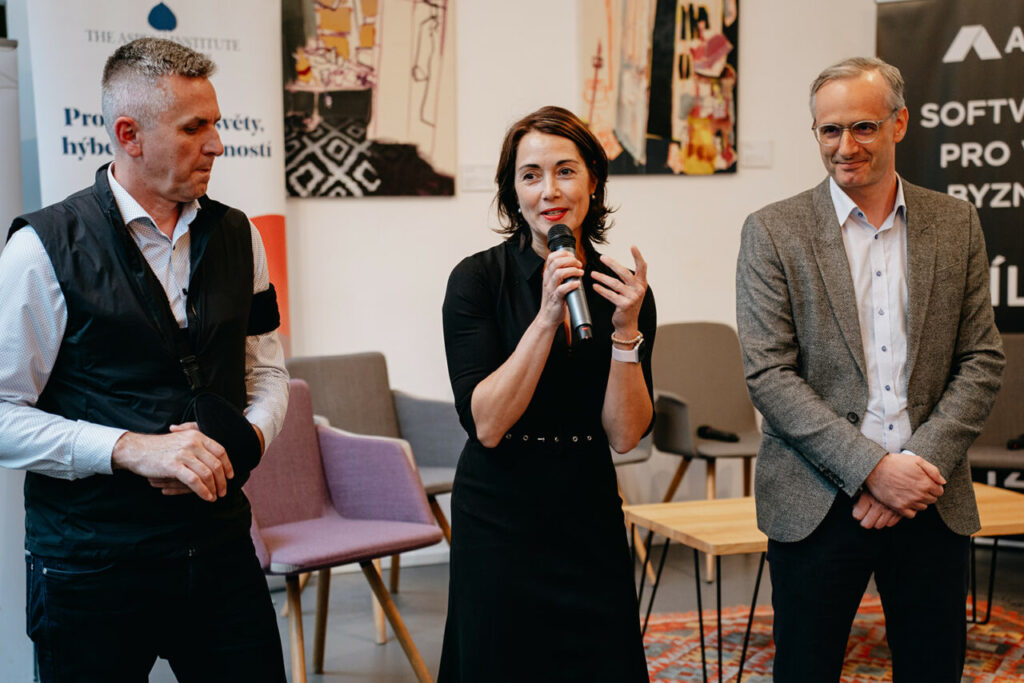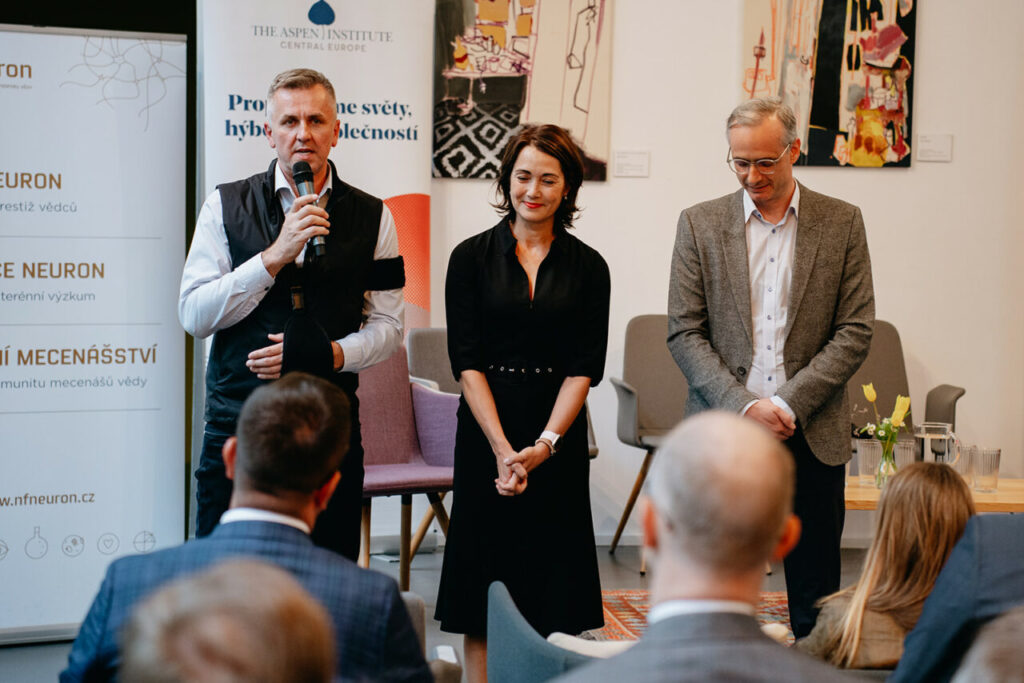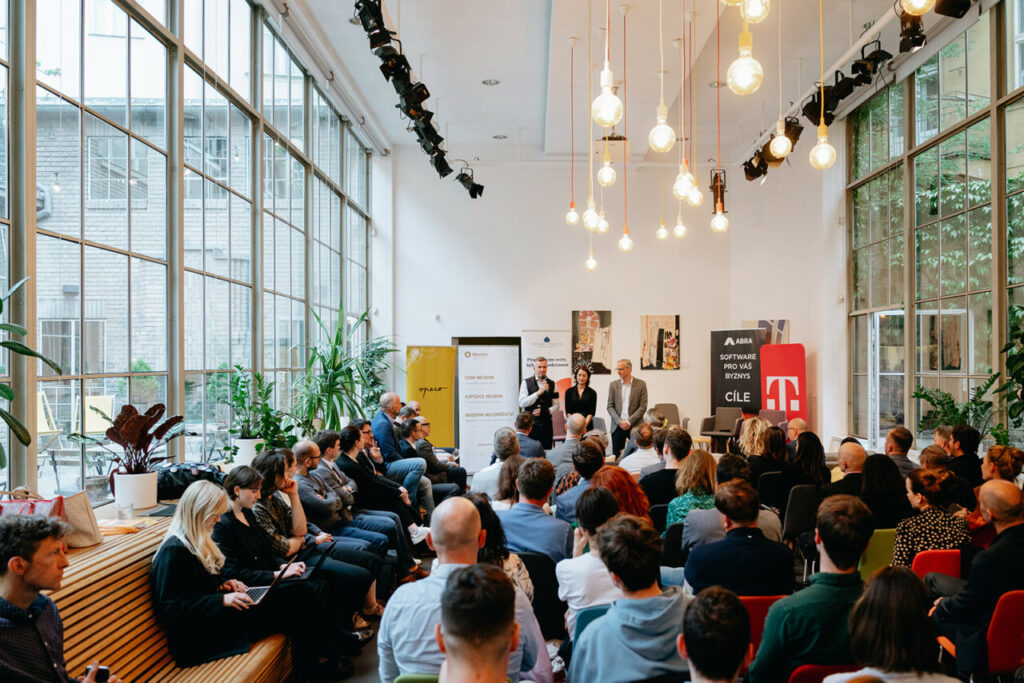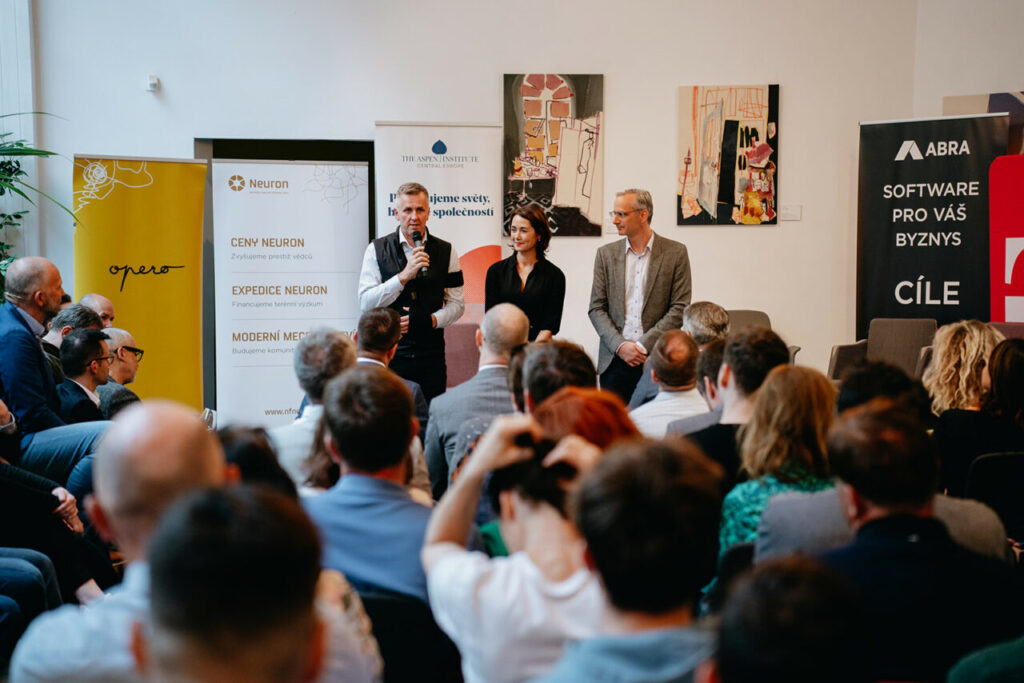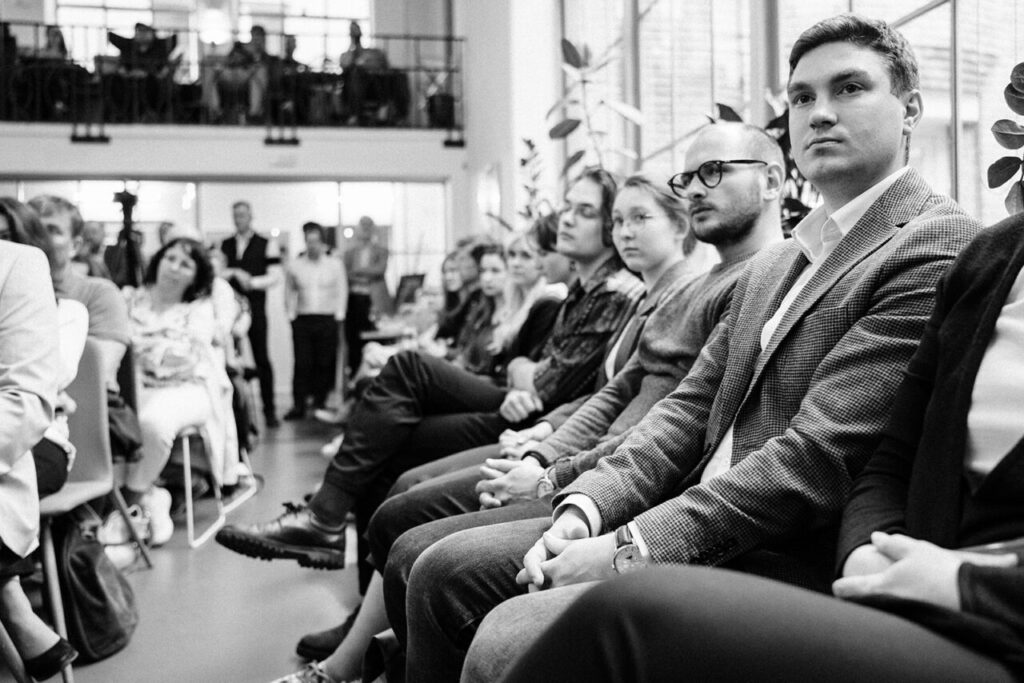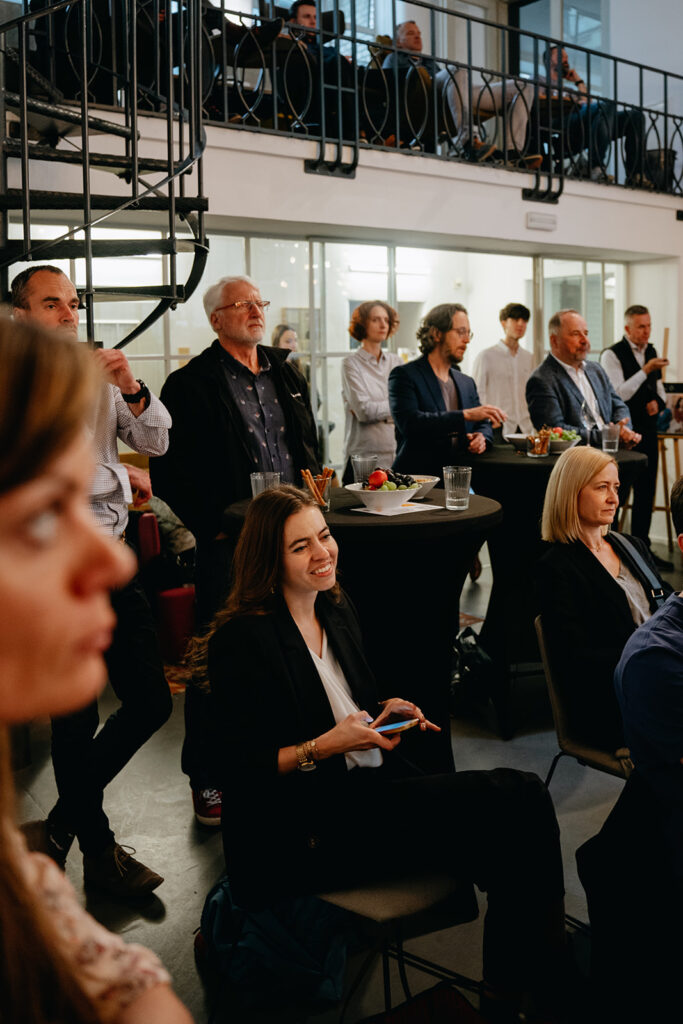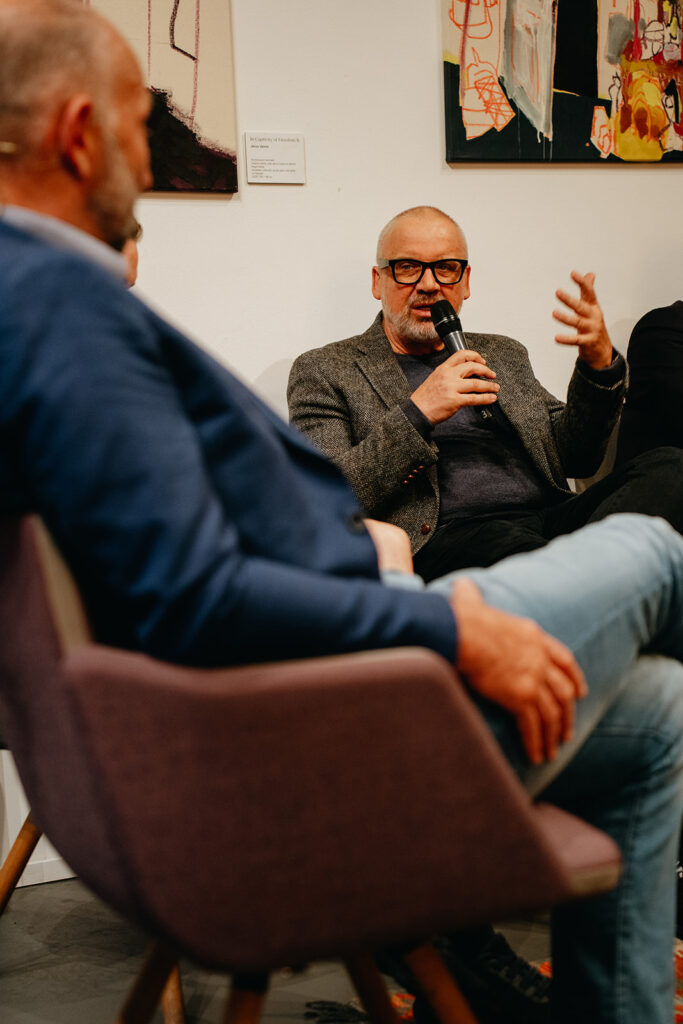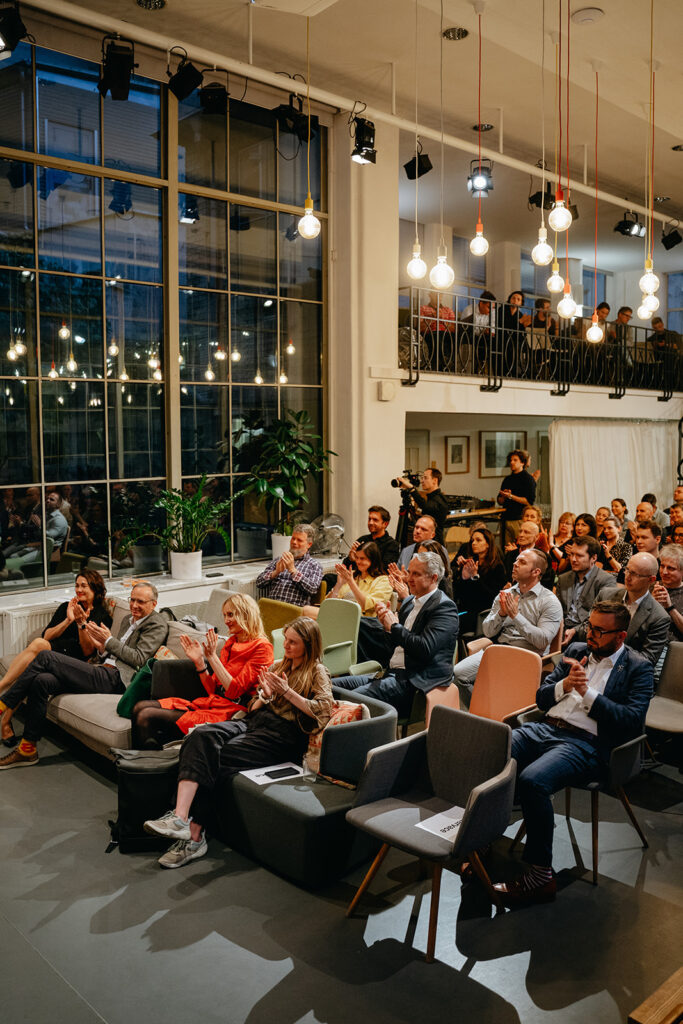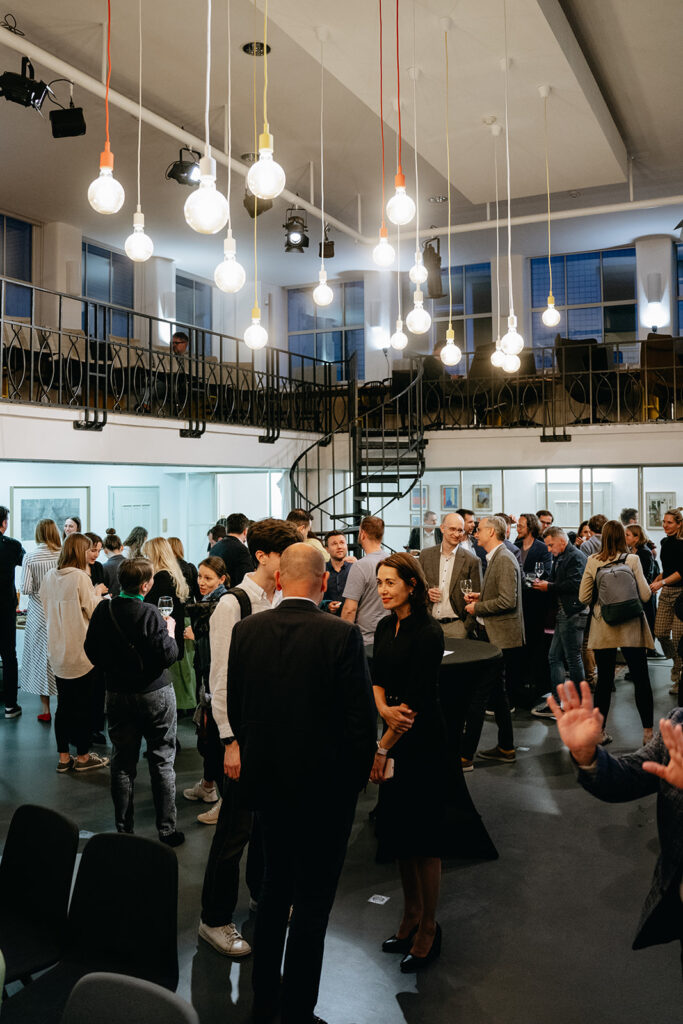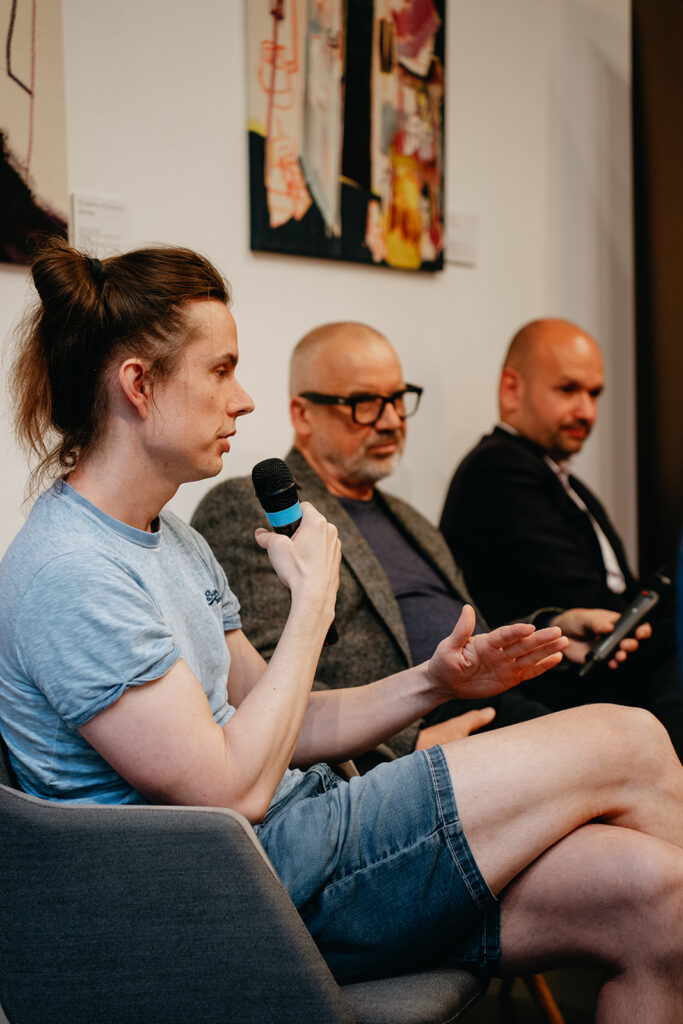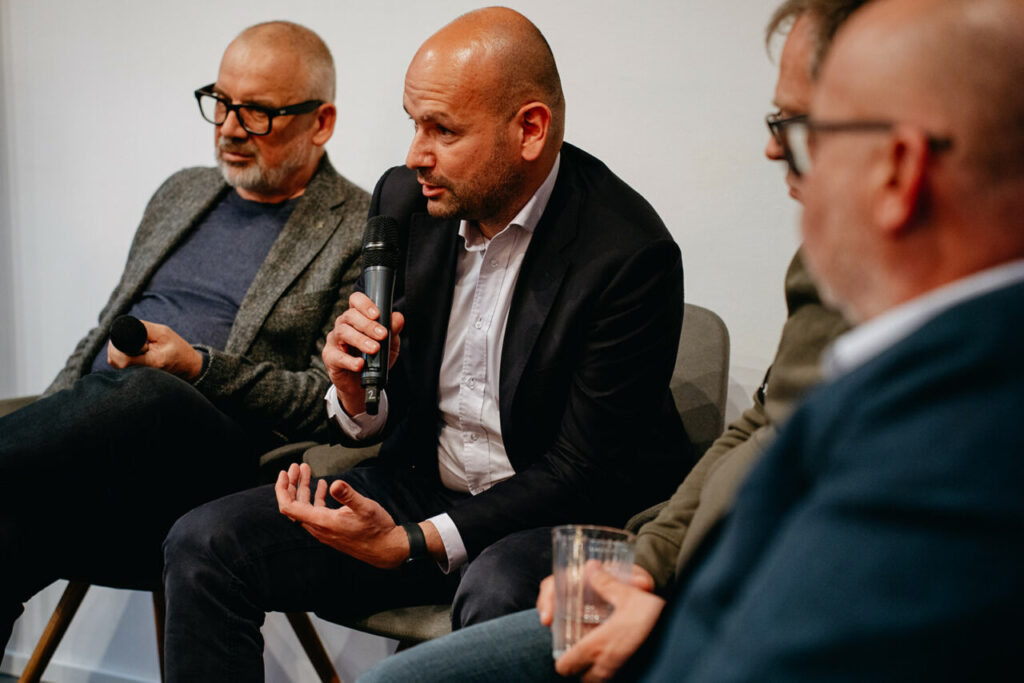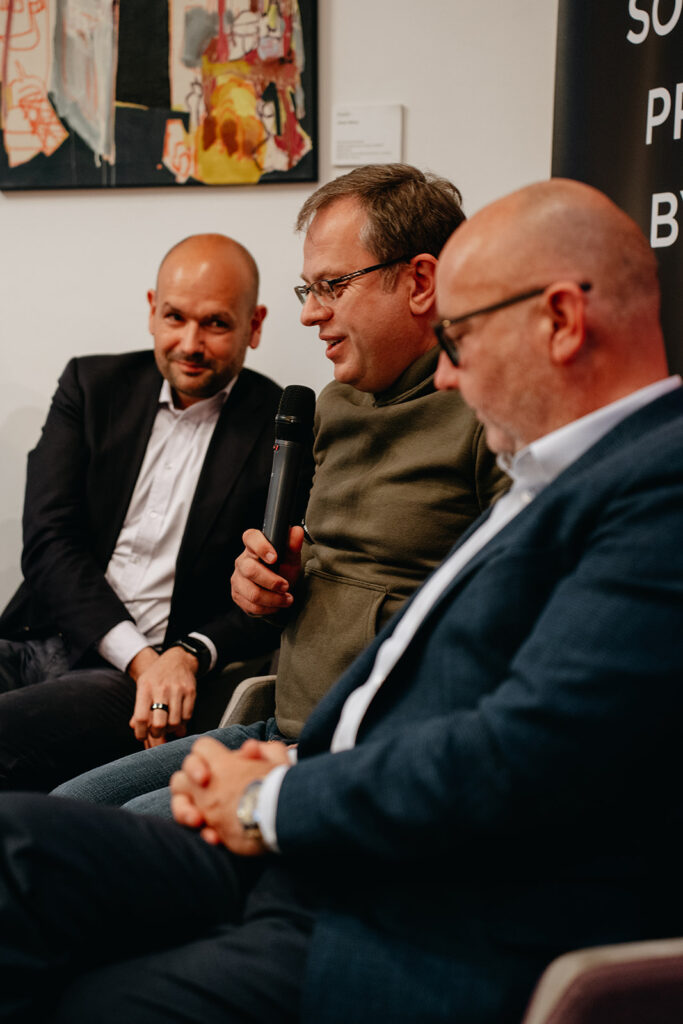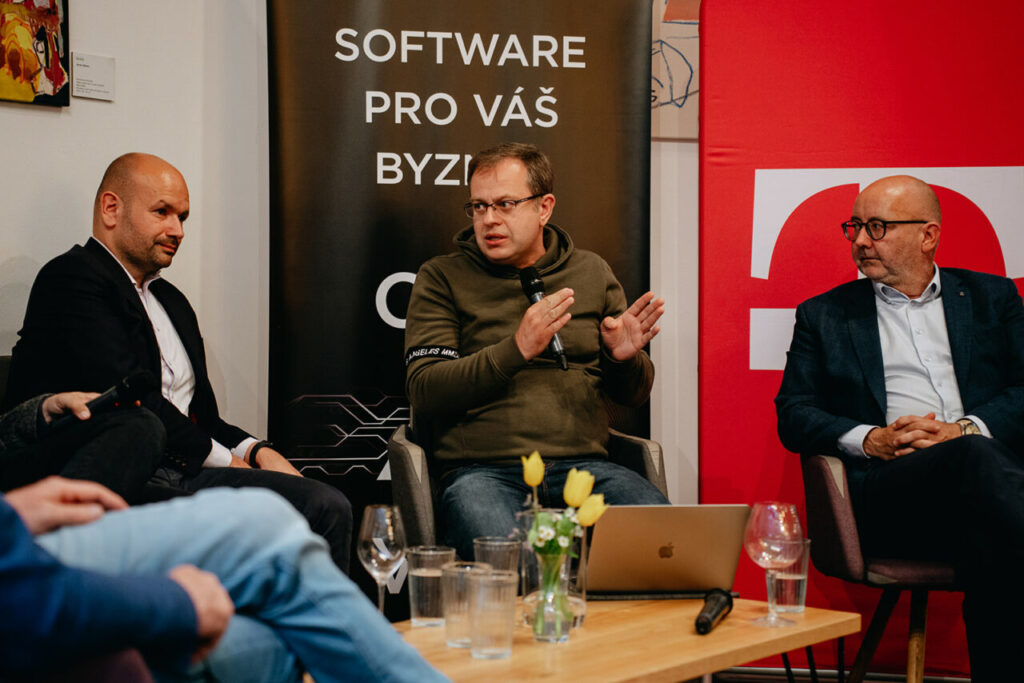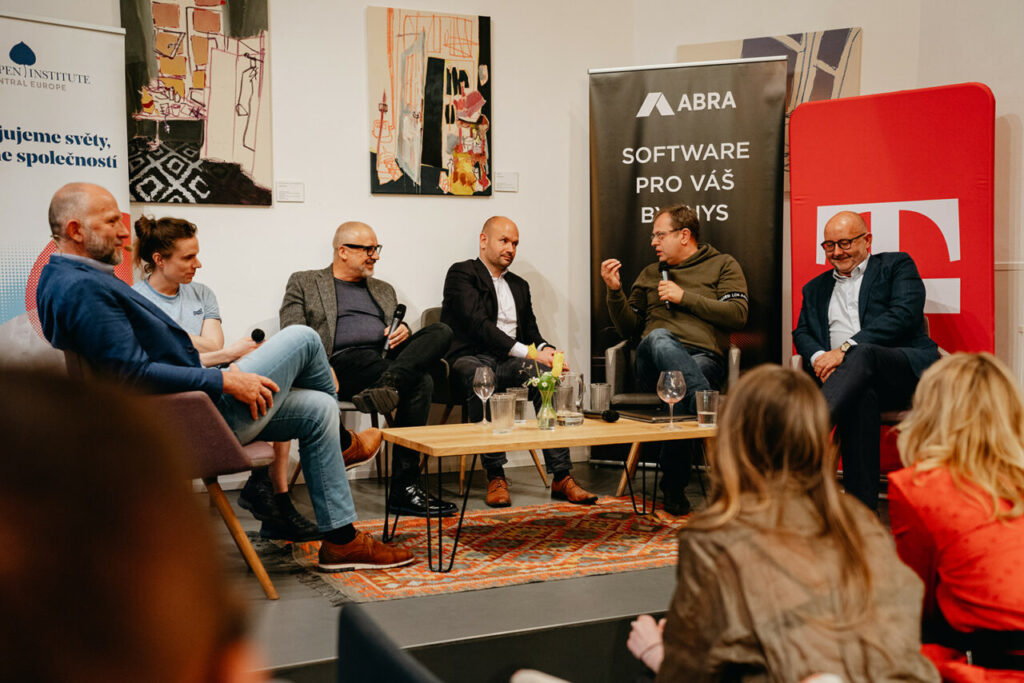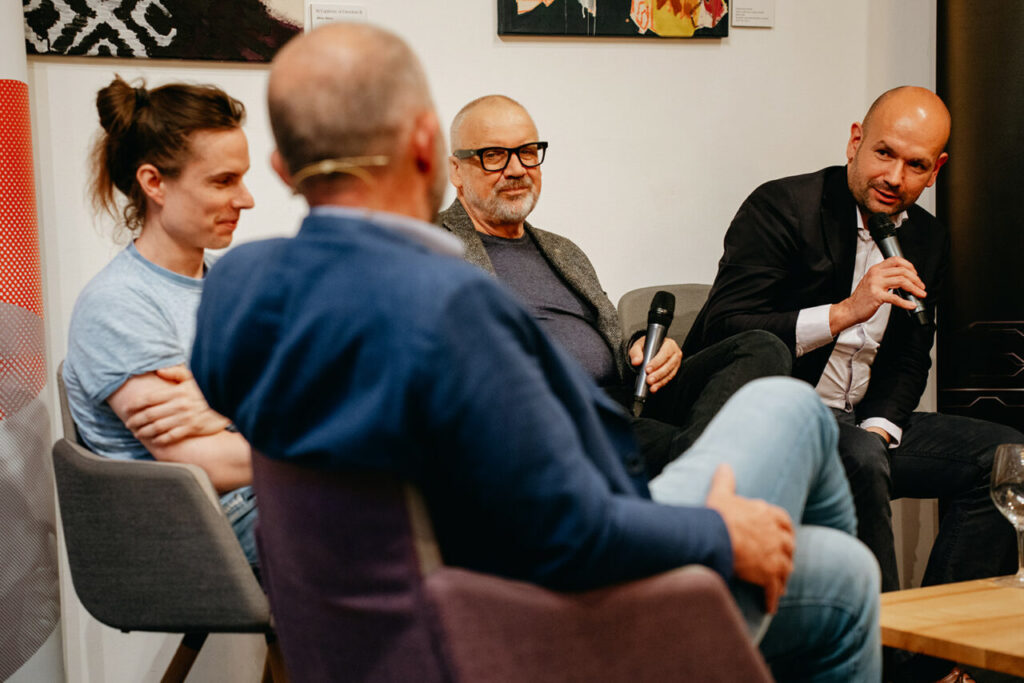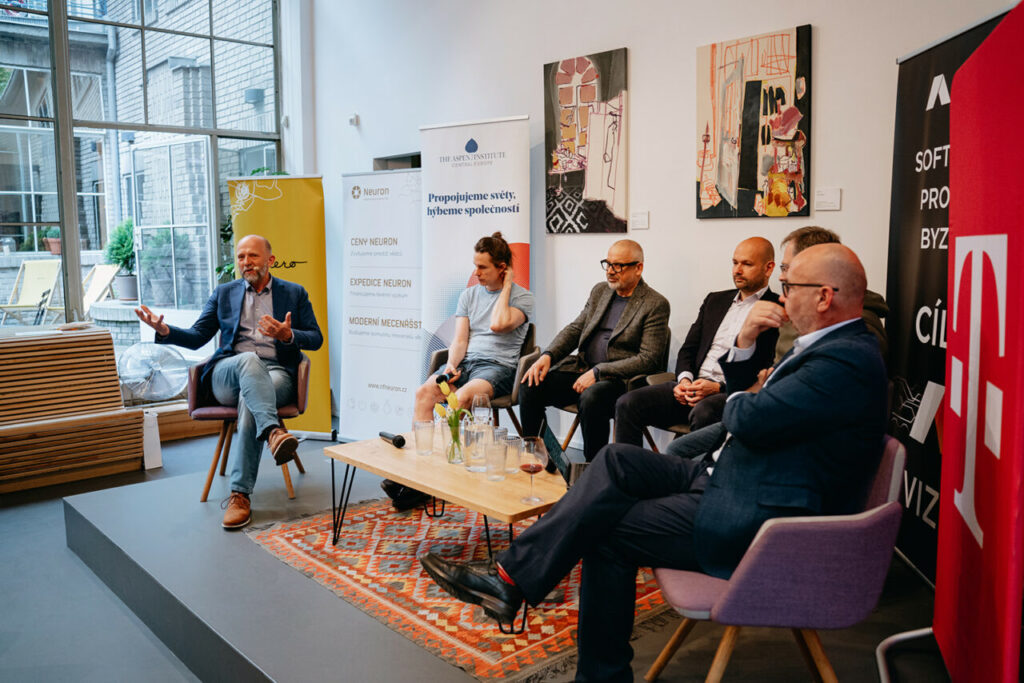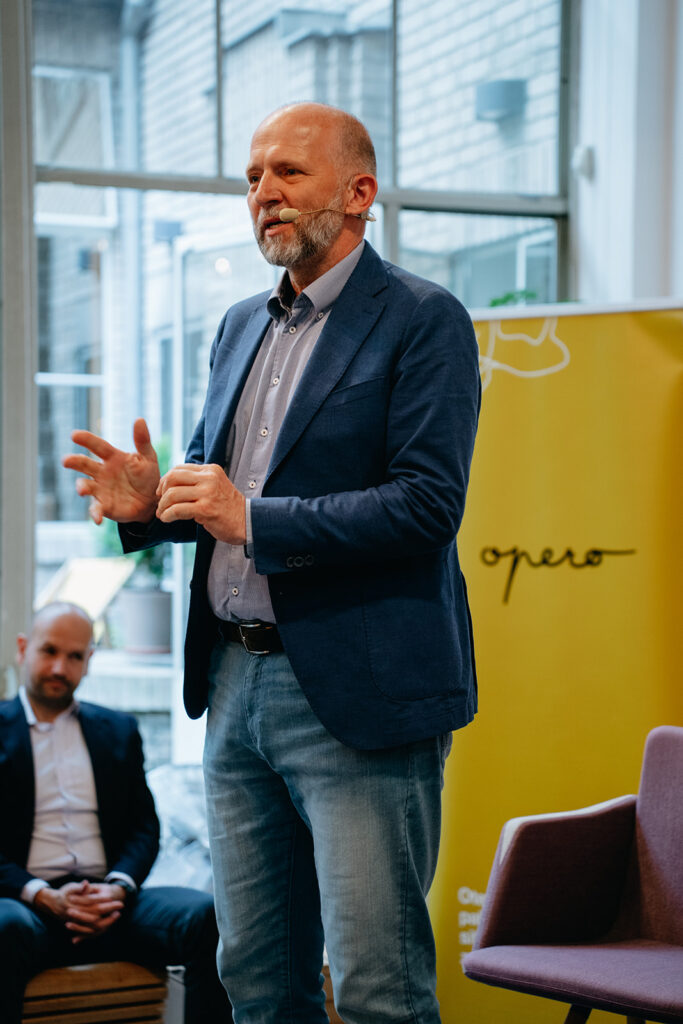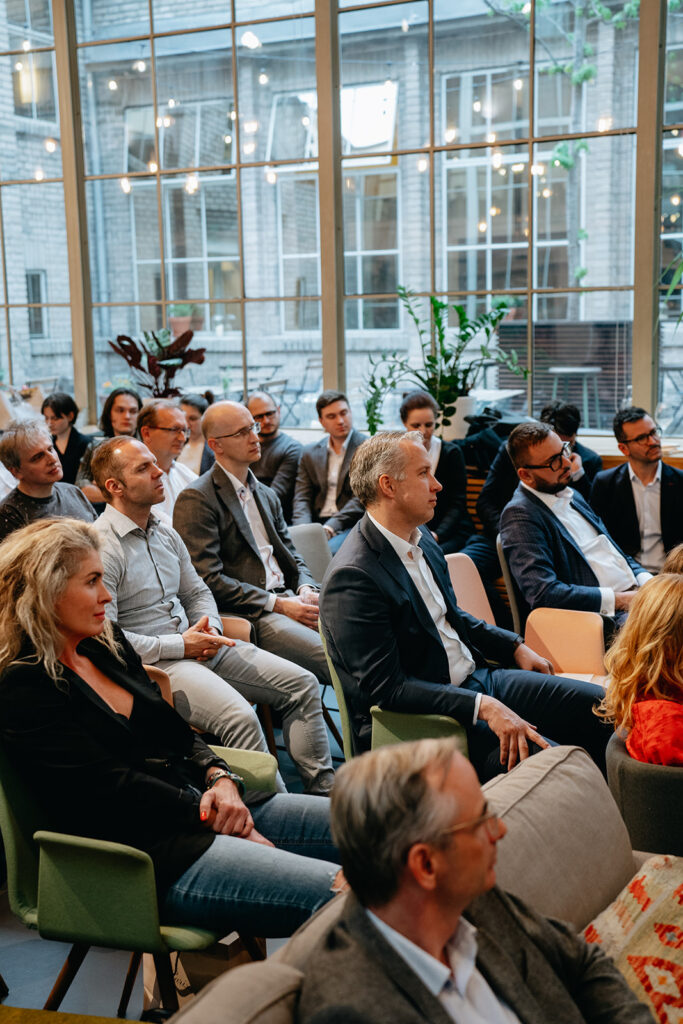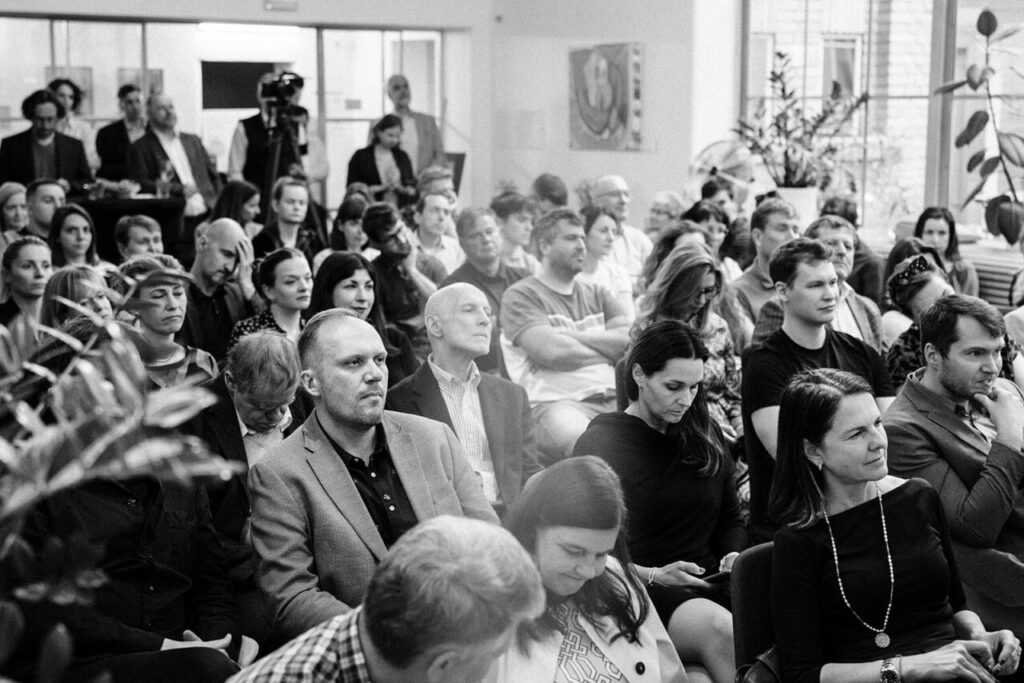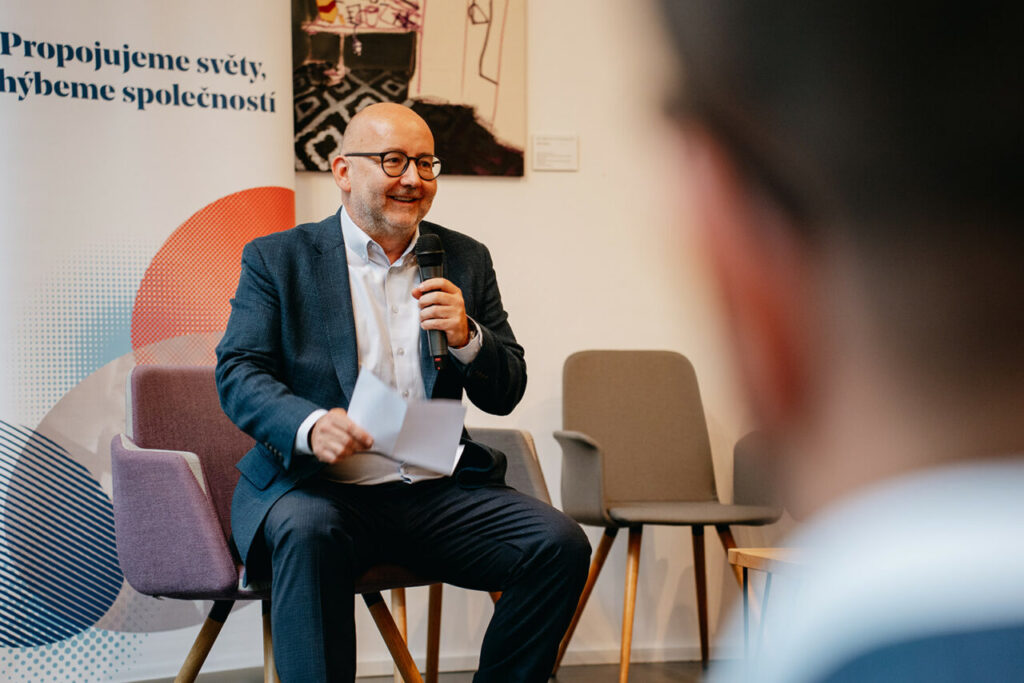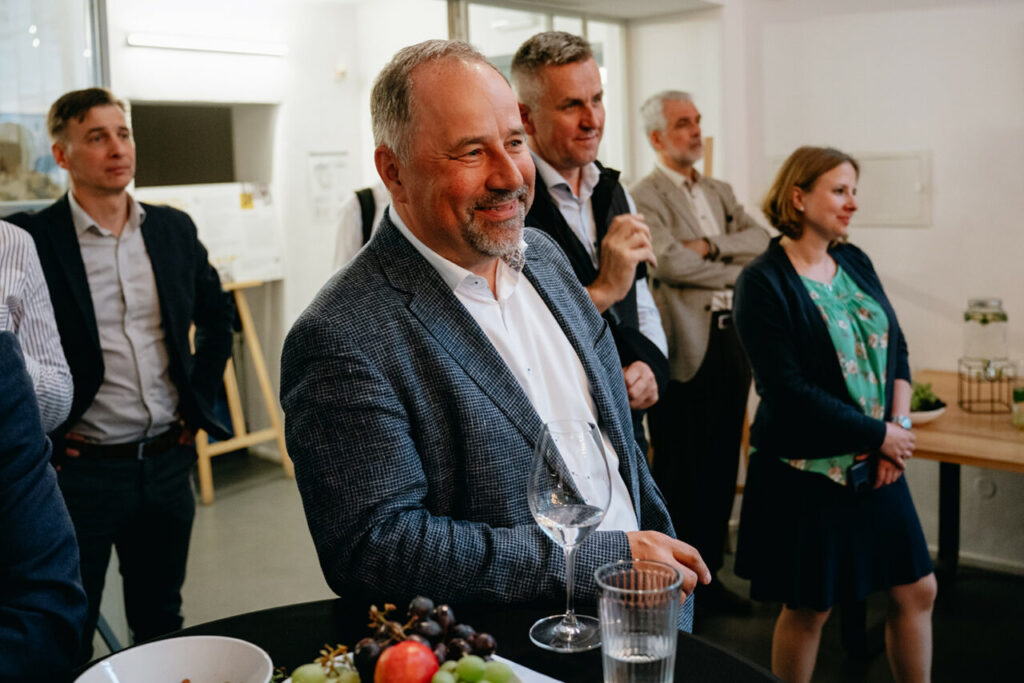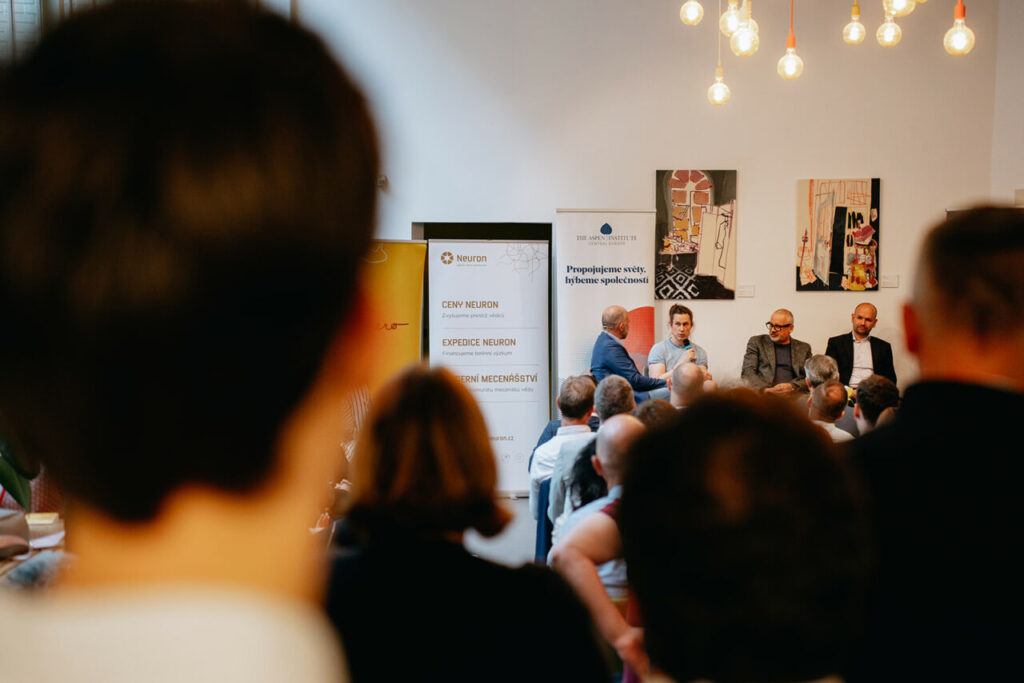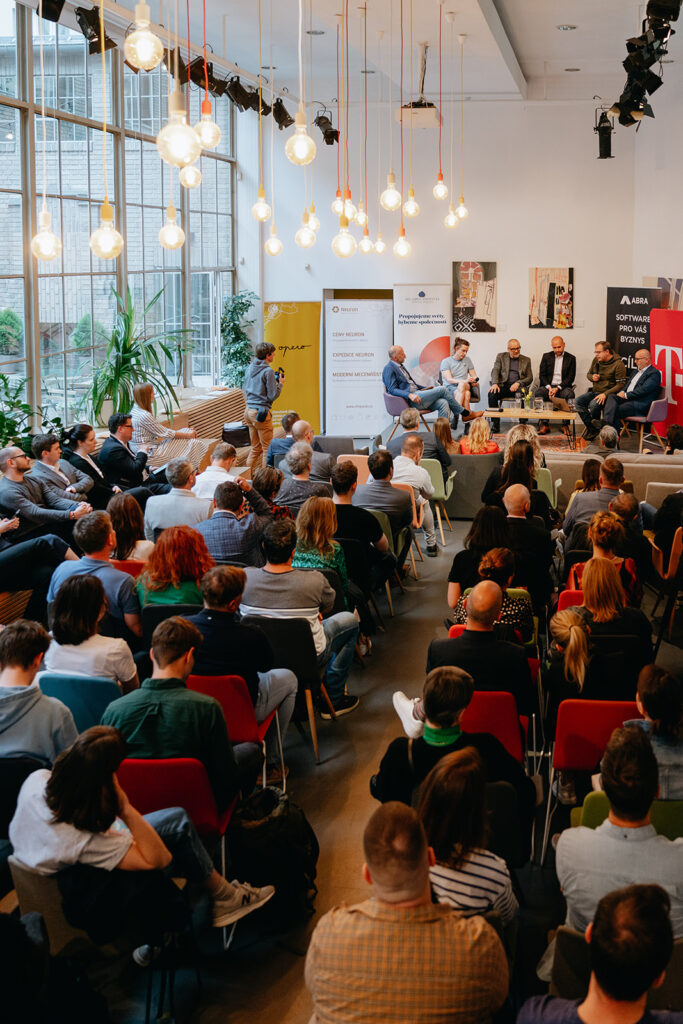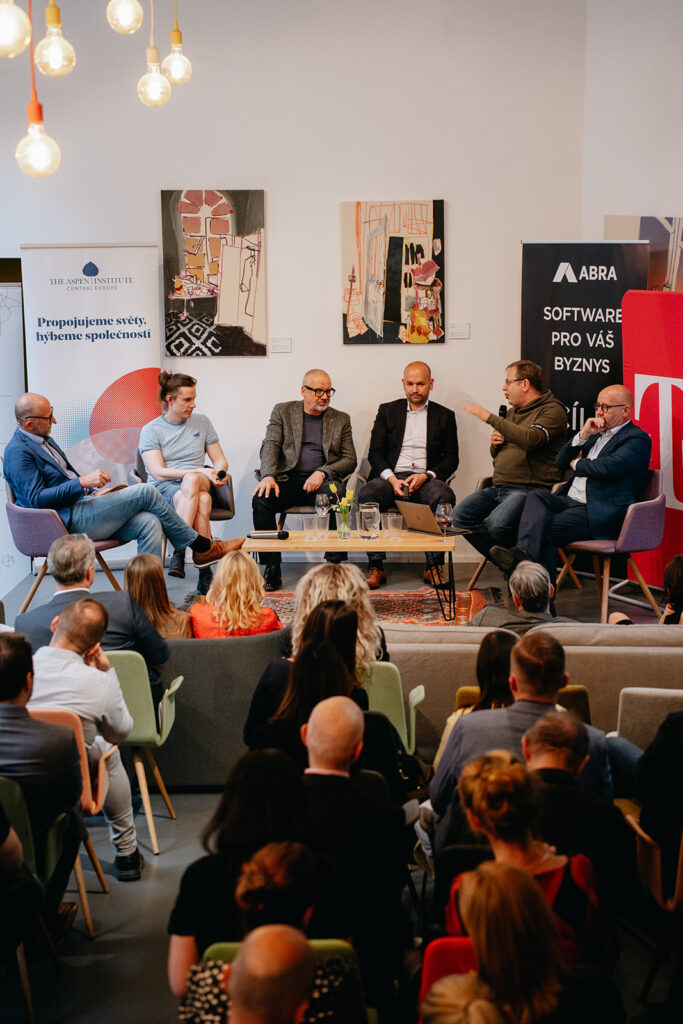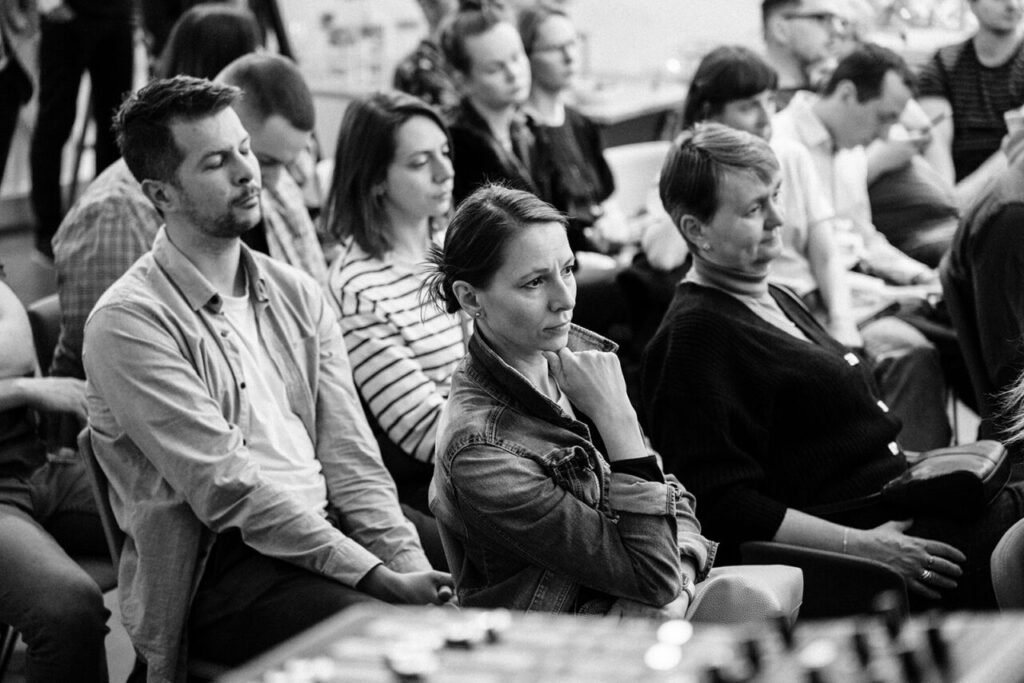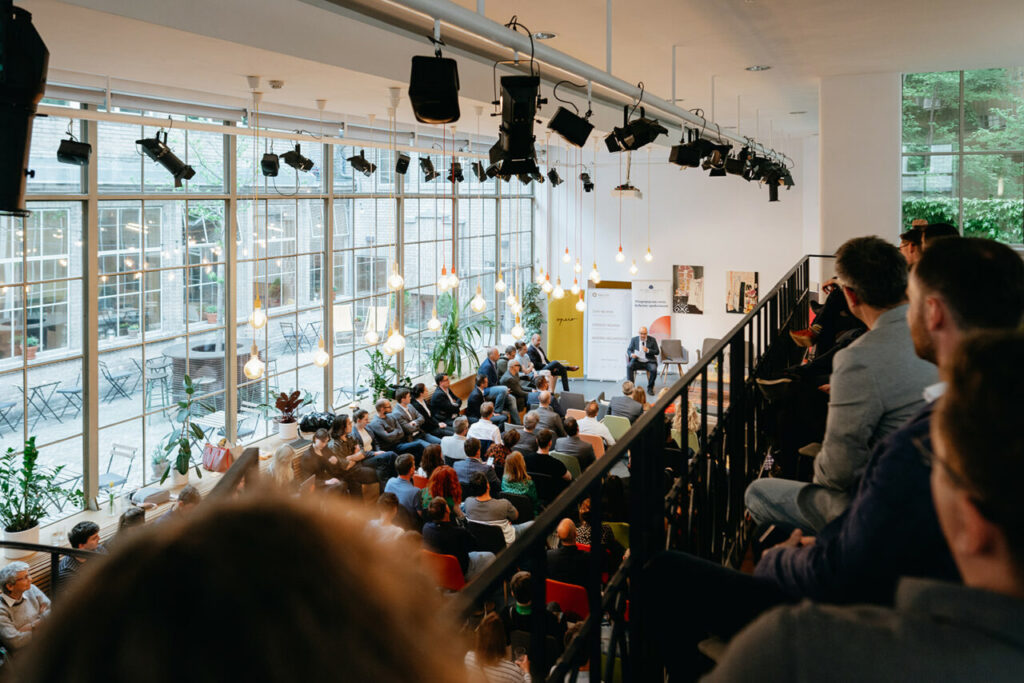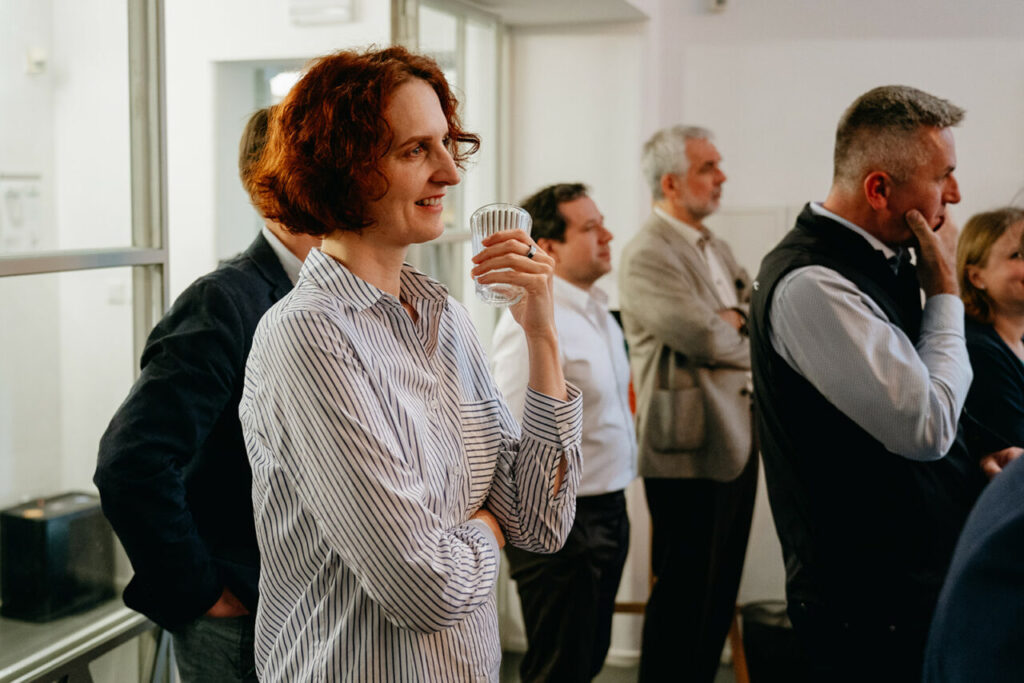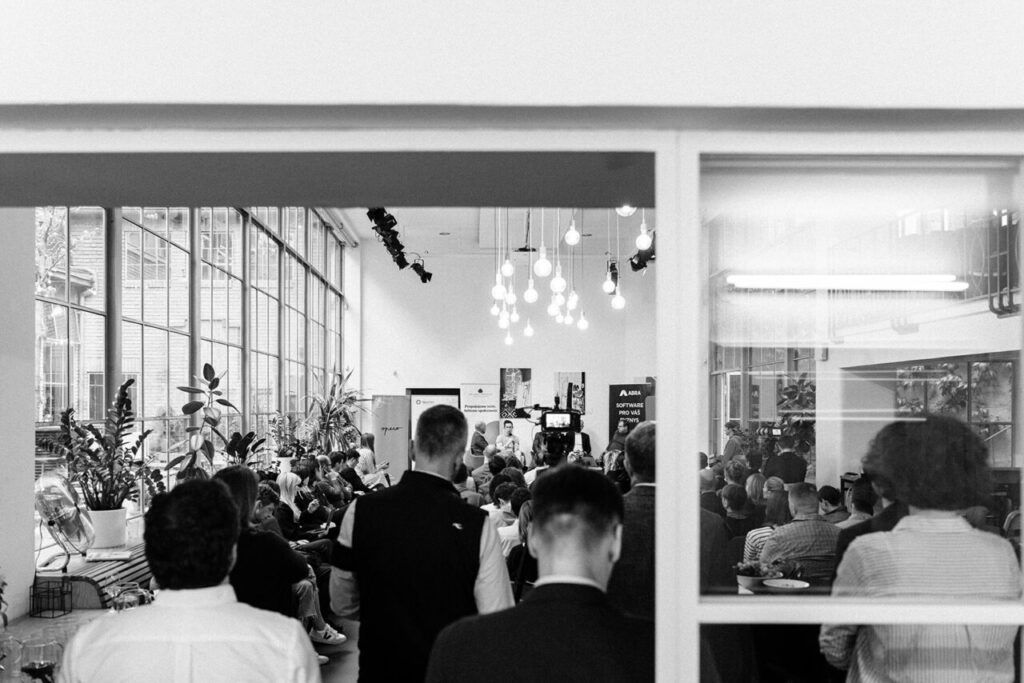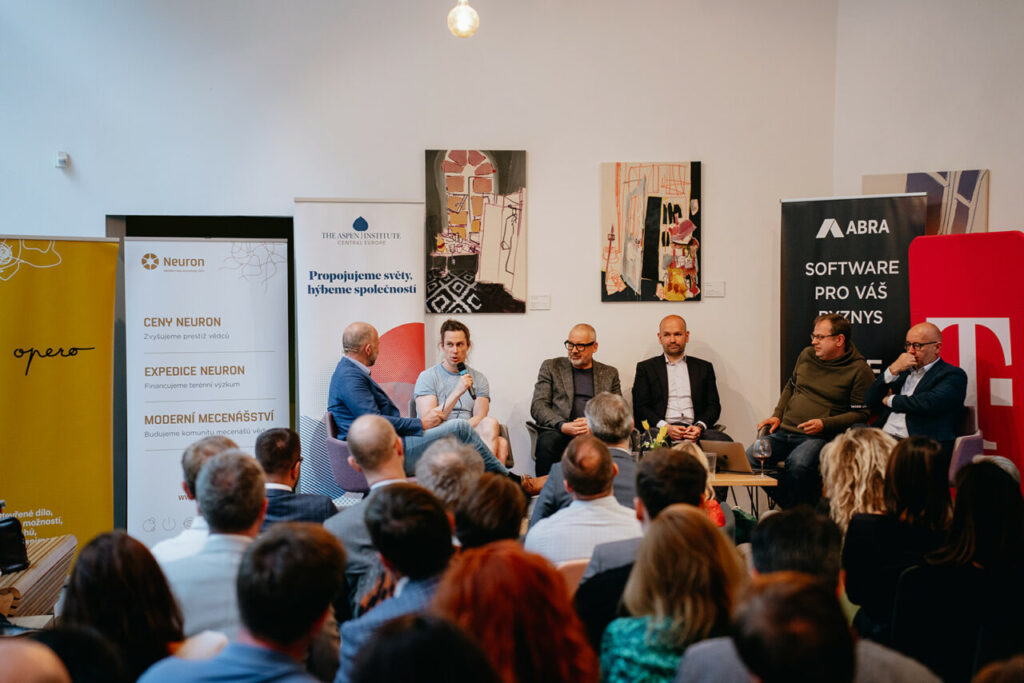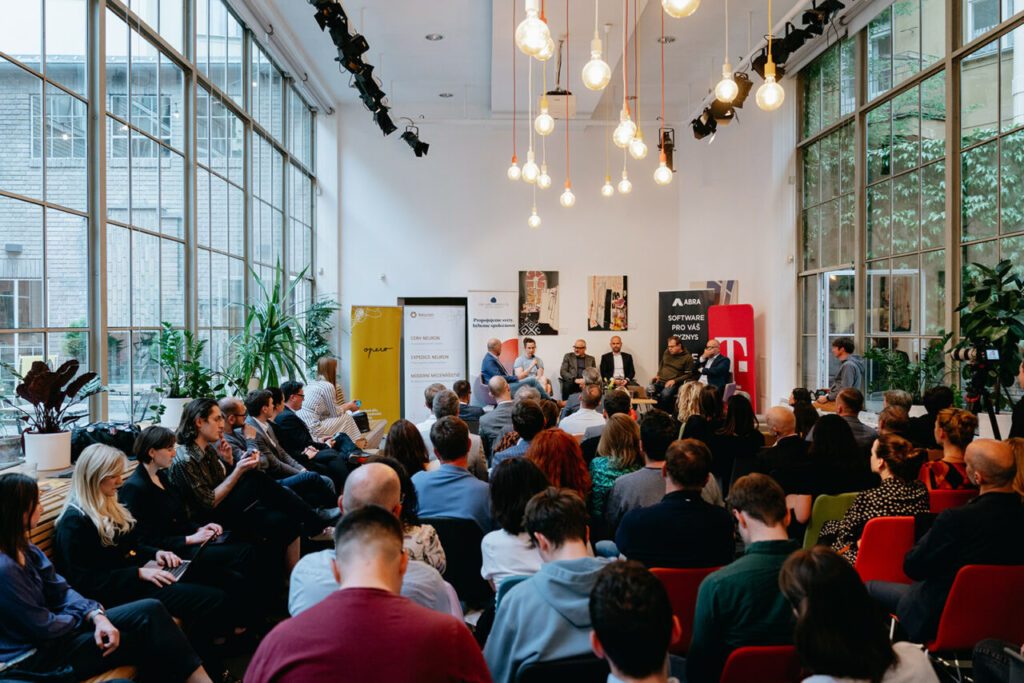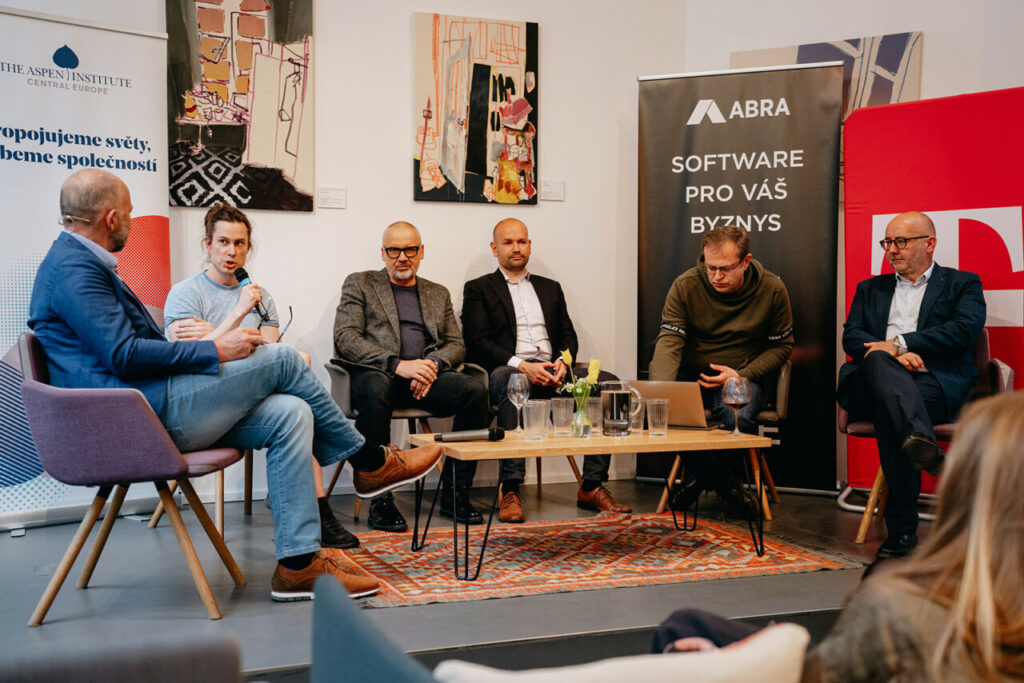Aspen Institute CE, The Neuron Foundation and Opero organized a debate as part of the Society 4.0 series, focused on the topic of artificial intelligence and its impact on society.
During the debate moderated by Petr Beneš from z 6D Academy, the participating speakers attempted to address several debatable questions and provide new perspectives on artificial intelligence. These included the following:
- Which areas of human activity will be most affected using artificial intelligence and how?
- How will the acquisition and utilization of information change? What impact will artificial intelligence have on education?
- Will artificial intelligence enhance our critical thinking abilities or have the opposite effect?
Speakers Miroslav Bárta, Václav Moravec, Michael Šebek, Jan Romportl and Tomáš Mikolov argued that artificial intelligence brings about many changes, and adaptation is necessary for society.
You can watch the entire debate here:
Egyptologist Miroslav Bárta was the first to contribute to the debate, perceiving artificial intelligence more positively. He views AI as a form of freedom rather than subjugation, but also emphasizes the importance of adaptation. If society adapts to the changes that artificial intelligence brings, it will help us move forward much faster.
“We need more institutions like Aspen and Neuron. Then we can make a significant leap forward.”
Václav Moravec views artificial intelligence with more skepticism but also highlights its positive sides. According to Moravec, proper communication is crucial for the appropriate use of AI. If artificial intelligence is communicated incorrectly, problems may arise. “The biggest skepticism lies in the fact that we will no longer be able to recognize which photo is real and which one is not. It is important to communicate the topic well.” If artificial intelligence is utilized, for example, for creativity and process automation, Moravec sees its potential. However, it will be more challenging to distinguish between original creations and AI-generated ones. He looks at the topic of artificial intelligence with more skepticism.
“Society is not prepared for the speed of information dissemination in the digital environment.”
Michael Šebek emphasizes the need for adaptation, which is essential for the functioning of society, acceptance, and proper utilization of artificial intelligence.
“We need to adapt to change, for it to continue, not shy away from it.”
Jan Romportl perceives artificial intelligence strongly and positively and states. Without artificial intelligence, it won’t work. “It is an essential component for the development of human civilization.”
“The reality is that brutal changes are coming, and we are not prepared for them.”
During the discussion, the speakers also examined how artificial intelligence disrupts the labor market and education.
Artificial intelligence also raises questions about the extent to which AI will impact education and its influence on students. Miroslav Bárta argues that AI will shift education in the right direction, leading to the decline of many professions. AI will take over stock trading, reducing, for example, the need for lawyers.
Michael Šebek suggests that by 2030, half of the population will change their occupation.
Tomáš Mikolov views AI positively and states that artificial intelligence has become a common term taught as an entire discipline in universities. Deep learning, as the head of machine learning, has transformed speech recognition and the way we work with massive datasets. Large language models are used as language generators and spelling correctors, with enormous potential for utilization. Tomáš Mikolov sees the fight against misinformation as a negative aspect.
At the end of the debate, the speakers focused on the future of artificial intelligence. Some perceive it positively, while others see more negatives.
Jan Romportl considers the future of artificial intelligence to be 60% positive and 40% negative. Václav Moravec leans more towards the negative aspects associated with artificial intelligence. “I won’t allow myself to be replaced by any avatar.”
Michael Šebek predicts that artificial intelligence will bring about many changes in the future and transform the everyday lives of everyone. “We will move to a different level in life.”
Miroslav Bárta claims that society needs evolution, not revolution. “If we allow it as a society, positive evolution will occur.”
Tomáš Mikolov states that there are various threats in the future, whether ecological or economic, and artificial intelligence could be the solution. He views AI more positively to avoid potential disasters.
“The connection between humans and AI is an optimistic future.”

